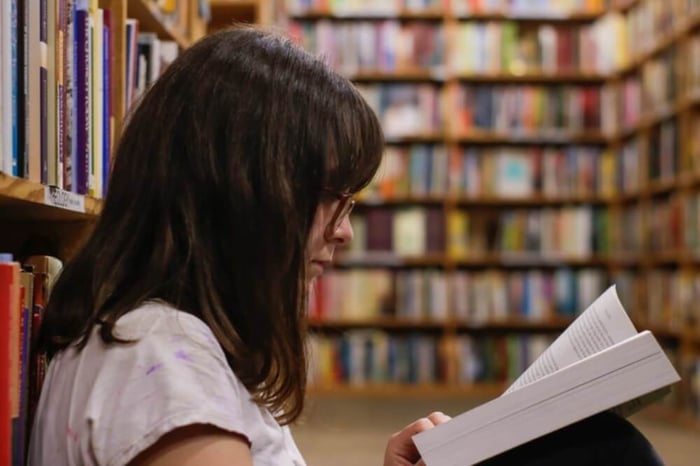
The Birmingham Medical School Interview and Student Experiences
The date is 30th September 2013. First year, first day of medical school, we swiped through the closed gates and entered the building we would call our second home.
As an eighteen-year-old on my first day at medical school with all my emotions heightened; excitement, fear, curiosity, everything seemed a bit dramatic. A bit like the opening scene of Grey's Anatomy, but I assure you this plotline has a lot less drama!
UNIVERSITY OF BIRMINGHAM MEDICAL SCHOOL - YEAR 1
Our year started off with a series of introductions which lasted a week. Worried you're going to get homesick? I was too, but I didn’t need to be because I got given a ‘medic family’, more formally known as a PM group. It consisted of people from each year and your personal mentors, who are there if and when you need them (contrary to what some people may think, medical students, are not actually robots and may need help from time to time).

BIRMINGHAM MEDICAL SCHOOL TEACHING METHODS
Next, we met our M-groups which consisted of sixteen people. For some, these were the first med-students they had spoken to since starting. For others, peers in the group would become their best friends in the coming years. From an educational point of view, all of our small group teaching (SGT) would be carried out in these M-groups.
SGT was the closest medical school got to high school in terms of how the content was delivered. In these sessions, we revised and extended on the material we learnt in lectures with the guidance of a professional in the field.
Birmingham Medical School primarily utilises the traditional method of teaching (i.e. lecture based) but the University does incorporate problem-based learning and SGT is one of the ways it does this. SGTs involved preparation beforehand - this could include reading around the topic or searching the literature for relevant publications. Ultimately, it encouraged us to become independent learners, which is an important skill to have as a medical student and future doctor.
The final part of the introduction week included preliminary lectures, I took my sniffly nose and continuous sneezes acquired from fresher’s week (yes, the dreaded Fresher flu) and sat among the 380 students in the Leonard Deacon lecture theatre (which after day 1 was referred to as LDLT) to begin our first lecture…
A STRANGE WAY TO BUILD UP AN APPETITE…

BIRMINGHAM CLINICAL YEARS
Fast forward two years, it was time to actually use the engraved stethoscope I bought two years ago.
BIRMINGHAM INTERCALATED DEGREE
THE LIGHT AT THE END OF THE TUNNEL
Despite being a challenging year, I gained and built on numerous skills needed in analysing papers and conducting lab experiments. Typically, a day would consist of a few lectures, five to six hours of experiments in the labs and finally writing up the progress of the day. I was fortunate to have a supportive lab group and observing the work with the other groups in the department, I learnt the importance of collaboration in research, which is something I was not able to fully appreciate before. The experience throughout the year, as well as the inspirational people I met, encouraged me to want to pursue research in the future.
BACK TO MEDICINE – YEAR 4
All our lectures that year were online and all our contact hours were spent in hospitals. A typical day would consist of attending the ward rounds and morning or afternoon clinics, observing surgeries if they were scheduled and listening to the online lectures. Having covered most specialities by the end of fourth year, I was able to make links and find similarities between specialities as well as in the diagnosis and management of the diseases.
APPLYING TO BIRMINGHAM SCHOOL OF MEDICINE
THE BIRMINGHAM MEDICAL SCHOOL INTERVIEW
MULTIPLE MINI INTERVIEWS (MMI)
MMI QUESTION TYPES:
- Ethics: for this question, the interviewer is looking to see how the applicant communicates in the situation. You might be presented with a medical issue and you will need to show that you can communicate effectively and ethically with the patient.
- Data interpretation: these questions are designed to test your ability to do simple calculations.
- Communication based: these are designed to see how well the applicant communicates with another person.
- Motivation & understanding of medicine: this station is designed to show that you understand what it means to work in health care. You should discuss the challenges faced by doctors and relate them back to your own experiences.
- Personal qualities: for this station, you should focus on your work experience and time when you were caring for people going through a hard time. This is your time to show the skills you have obtained from caring for others. You should show that you can work with and manage patients effectively.
- Role play: the role play simulation station is where you will actually act our a scenario with an actor. You should show strong communication skills here and show that you can effectively manage the situation.
Throughout the various stations, you should focus on your own experiences while showing why you want to study medicine and become a doctor. Some of the stations may require working in teams to show that you can effectively work in a group. Overall, the main thing to focus on is staying calm and just keep practising!
I hope that I have given you a brief insight into what being at medical school entails. It is hard work with peaks and troughs but you will work hard and play hard. Who knows, maybe I will run into one of you at Birmingham in the future?
We hope you found this information useful in helping you get a sneak peek into life as a Birmingham Medical School Student. If you have any questions or need advice don’t hesitate to email us at hello@theMSAG.com.



